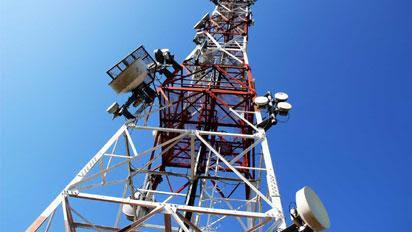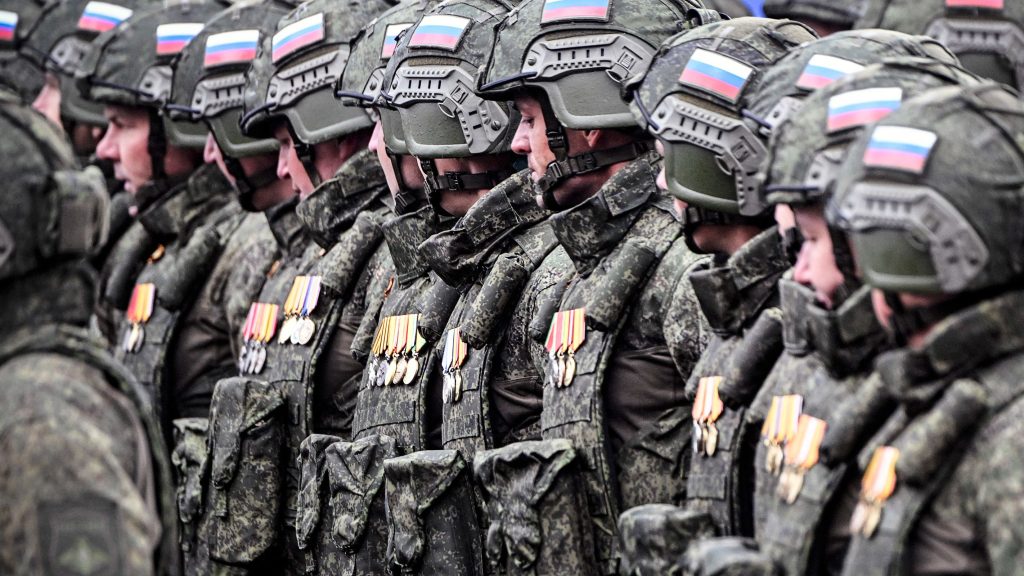Headline
REVEALED: Why Nigeria, Ghana, Others Are Experiencing Internet Outages

Internet watchdog, NetBlocks has said internet connectivity disruption in eight West African countries, including Ghana, Nigeria, Cameroon Ivory Coast, Liberia, and the Benin Republic on Thursday was a result of undersea cable damage.
NetBlocks stated this in a post on its X handle on Thursday.
NetBlocks is a watchdog organisation that monitors cybersecurity and the governance of the Internet. The service was launched in 2017 to monitor Internet freedom.
NetBlocks, in the post, said, “Live network data show today’s telecoms disruption in #Africa has intensified; the incident has high impact to West Africa with significant reductions in connectivity evident across the continent; operators report multiple subsea cable failures.”
READ ALSO: Confusion As EFCC Joins Kogi Ex-gov, Bello In Amended N100bn Corruption Case
Earlier, before that, it posted, “Confirmed: Live network data show a major disruption to internet connectivity in and around West and Central #Africa; the incident affects networks supplying telecoms via subsea cables to multiple countries and operators.”
Also, one of the world’s leading financial news organisations, Bloomberg, the West Africa Cable System, MainOne, and ACE sea cables — arteries for telecommunications data — were all affected on Thursday.
MTN Nigeria, in a post on its X handle confirmed the internet disruption. It explained that the network outage experienced by its subscribers was a “result of damage to international undersea cables across East & West Africa”.
“The repair process is ongoing to resolve the situation as soon as possible. Please look out for further updates,” MTN Nigeria said.
READ ALSO: JUST IN: Immigration Lifts Restrictions On Movement At Nigeria-Niger Border
Already, the National Communications Authority in Ghana has revealed that multiple undersea cable disruptions have led to an outage of internet services in the country.
According to a statement from the Authority seen by our correspondent on Thursday, NCA said “The disruptions affecting multiple undersea cables responsible for carrying international traffic have occurred in Senegal and Cote D’Ivoire and with some disruptions in Portugal. This has led to a significant degradation of data services across the country.
“It is important to note that the Mobile Network Operators have redundancies on other cables and are working around the clock to restore full services. In addition, the MNOs have informed affected customers of the disruptions via various channels.”
Some Ghanaians have taken to the social media platform, X, (formerly Twitter) to express their displeasure with the situation, which had started in the morning.
READ ALSO: Budget Padding Controversy: Akpabio Knocked, Asked To Immediately Step Aside
An X user, George Koranteng, asked “Is it my area or the whole Ghana MTN internet is down?’
Another user, Koho Khan, tweeted, “I legit can’t do any work today because I got no internet. Legit nothing is working. Lol Ghana.”
In a message from MTN Ghana to their customers at 1 pm Ghanaian time, the telecoms provider apologised and said “This is due to disruption on our international undersea cables. Our technical teams are working with our international partners to resolve the issue. We sincerely apologise for any inconvenience and will keep you updated.”
The Ghana Chamber of Telecommunications also issued a statement signed by one Louise Bobbie Osei, notifying users of the outage which it said affected internet, date, and Voice over IP services of the “Chamber, the Mobile Network Operators and the Data Service Providers to varying degrees. As a result, customers and subscribers are currently experiencing service challenges.”
Headline
Insecurity: US Congressman Riley Moore Reveals Trump’s Mission In Nigeria

US Congressman Riley Moore has dismissed insinuations that President Donald Trump is attempting to bring war to Nigeria.
Moore made the remark in a post on his verified X handle on Monday.
His comments followed a US military airstrike on a terrorist enclave in north-west Nigeria on Christmas Day, reportedly carried out on the directive of President Trump.
“President Trump is not trying to bring war to Nigeria, he’s bringing peace and security to Nigeria and to the thousands of Christians who face horrific violence and death.
READ ALSO:Russia Calls up 135,000 Military Personnel
“The strikes against ISIS on Christmas, in coordination with the Nigerian government, have given hope to the Christians in Nigeria,” he said.
Recall that the lawmaker had previously stated that President Trump is focused on ending the killing of Christians in Nigeria.
It will be recalled that Moore led a US delegation on a fact-finding mission into alleged Christian genocide in Nigeria some weeks ago.
During his brief stay in the country, Moore travelled to Benue State, where he interfaced with religious and traditional leaders, as well as internally displaced persons.
Headline
Russia Calls up 135,000 Military Personnel

Russia has enlisted 135,000 conscripts for military service in 2026, following the conclusion of the autumn army draft by the Defense Ministry.
A statement on Monday said most personnel have been assigned to training units and military formations where they will “get a military specialty and learn to operate modern military hardware.”
The conscripts can choose to serve in any of the various military branches and armed services after an assessment of their health condition and the results of psychological examinations.
READ ALSO:Russian Strike On Odesa Region Kills Eight, Injures 27
The ministry disclosed that 680 recruits have joined scientific and research-production units, while 240 from the country’s national teams in Olympic disciplines joined sports companies.
However, military personnel who have served the established term of military service have been discharged and sent to their places of residence.
The latest enlistment confirms Russia is shoring up its troops deployed to the ongoing special military operation in Ukraine ahead of the new year.
READ ALSO:Putin Says Russia Ready For War, Blames Europe For Sabotaging Peace
A fortnight ago, European leaders reaffirmed their pledge to form a multinational force–under the aegis of the Coalition of the Willing–to assist Ukraine in securing land, skies, and seas.
The pledge is one of the six commitments the EU and heads of state developed for Ukraine’s security and economic recovery support measures.
In an interview with TASS on Sunday, Russian Foreign Minister Sergey Lavrov condemned Europe’s insistence on sending military forces to Ukraine.
“We have said many times that our Armed Forces would view them as a legitimate target,” he said, warning that anyone who attacks Russia would face “a devastating blow.”
Headline
How Our Airstrikes Stopped Christmas Attacks In Nigeria — US Lawmaker

Riley Moore, a member of the United States House of Representatives from West Virginia’s 2nd District, has linked the absence of Christmas attacks in Nigeria this year to US military airstrikes carried out against Islamist militants on Christmas Day.
In a post on his official X account on Saturday, Moore contrasted the situation with the past two Christmas seasons, during which he claimed Christians were killed in attacks across parts of Nigeria.
The lawmaker noted that this year’s response targeted extremist groups instead of marking another period of violence.
READ ALSO:Rep Moore Confirms 12 Tomahawk Missiles Launched In Sokoto
He added that US forces acted decisively against militants in coordination with the Nigerian government.
“For the past two Christmases, Christians have been murdered in Nigeria. This year, thanks to @POTUS, Radical Islamic Terrorists were on the receiving end of 12 Tomahawk missiles as a present.
“The successful strikes on ISIS, in coordination with the Nigerian government, are just the first step to secure the country and end the slaughter of our brothers and sisters in Christ,” Moore wrote.
US President Donald Trump said on Thursday that American forces had conducted deadly strikes against Islamic State terrorists in north-western Nigeria.
Trump, who spoke via his Truth Social platform, warned that more attacks would follow if the militants continued killing Christians, adding that the Department of War executed numerous “perfect strikes.”

 Headline4 days ago
Headline4 days agoJUST IN: US Forces Bomb Terrorists Camps In Nigeria

 News4 days ago
News4 days agoOkpebholo Slams ₦25bn Libel Suit On Edo PDP Chairman

 Headline4 days ago
Headline4 days agoUS Dept Of War Shares Video Of Air Strikes In Nigeria

 News3 days ago
News3 days agoPHOTOS: SGF George Akume Weds Ooni’s Ex-Queen

 News14 hours ago
News14 hours agoBREAKING: Anthony Joshua Involved In Road Accident

 News4 days ago
News4 days agoShehu Sani Reacts To Trump’s Military Strikes In Nigeria

 News4 days ago
News4 days agoTrump’s Airstrikes: Halt Military Cooperation With US Immediately – Sheikh Gumi Tells Tinubu Govt

 Headline4 days ago
Headline4 days agoU.S. Lawmaker Reacts To Nigeria, U.S. Airstrikes

 News1 day ago
News1 day agoEx-Edo Gov Obaseki Reacts As His Cousin Is Beaten, Stripped

 News4 days ago
News4 days agoYULETIDE: UBTH CMD Charges Nigerians To Be Hopeful In Coming Year


























